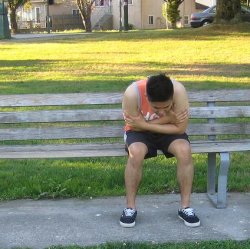Narcolepsy is a neurological disorder that affects sleep and wakefulness. The affected individual experiences daytime sleepiness and uncontrollable intermittent episodes of falling asleep in the daytime. The sleep attacks usually happen during any type of activity and anytime throughout the day.
In the cycle of sleep, we first enter the early stages of sleep and followed by deeper sleep stages and eventually after about 90 minutes, the rapid eye movement sleep (REM) starts. Among people with narcolepsy, REM happens immediately in the sleep cycle and during waking hours and it is in the REM that we have dreams and paralysis of muscle which is one of the symptoms of narcolepsy. This usually happens between the ages of 15-25 but can be noticeable at any age.
People suffering from narcolepsy have difficulty staying awake for long periods of time and causes disruptions in the daily routine. Sometimes, narcolepsy can cause loss of muscle tone or cataplexy that can result to losing muscle control and weakness and can also be caused by a strong emotion, usually laughter.
Symptoms

- Excessive daytime sleepiness (EDS) in which the affected person experiences cloudiness, lack of concentration and energy, lapses in memory, extreme exhaustion and depressed mood.
- Sudden loss of muscle tone that causes feelings of weakness known as cataplexy. The person experiences slurred speech, total body collapse and can be caused by intense emotions such as laughter, surprise or anger.
- Symptoms that cause temporary inability to speak or move while sleeping or waking up and last for only a few seconds or in several minutes which is known as sleep paralysis.
Causes
- Narcolepsy can be caused by a deficiency in the production of chemicals called hypocretin by the brain.
- Some abnormalities in some parts of the brain that regulates REM sleep.
Treatment
- Maintain a regular schedule when going to sleep and waking up at the same time every day, usually 7-8 hours of sleep every day.
- Avoid caffeine, alcohol and nicotine and eating heavy meals in order to help prevent interruption of sleeping
- Consume a diet that is rich in vitamins and mineral content and avoid processed foods as much as possible.
- Schedule naps during the day such as taking a 20 minute nap at least 2 times every day.
- Avoid driving a vehicle or operating a machinery when feeling sleepy
- Perform moderate regular exercises at least 4-5 hours before bedtime every day since it makes a person feel awake during day time and have a better sleep at night.
- Using cayenne also help with the condition. It can be consumed in the diet together with juice to help lessen the episodes of narcolepsy.
- Take magnesium supplements at least 1000milligrams every day
